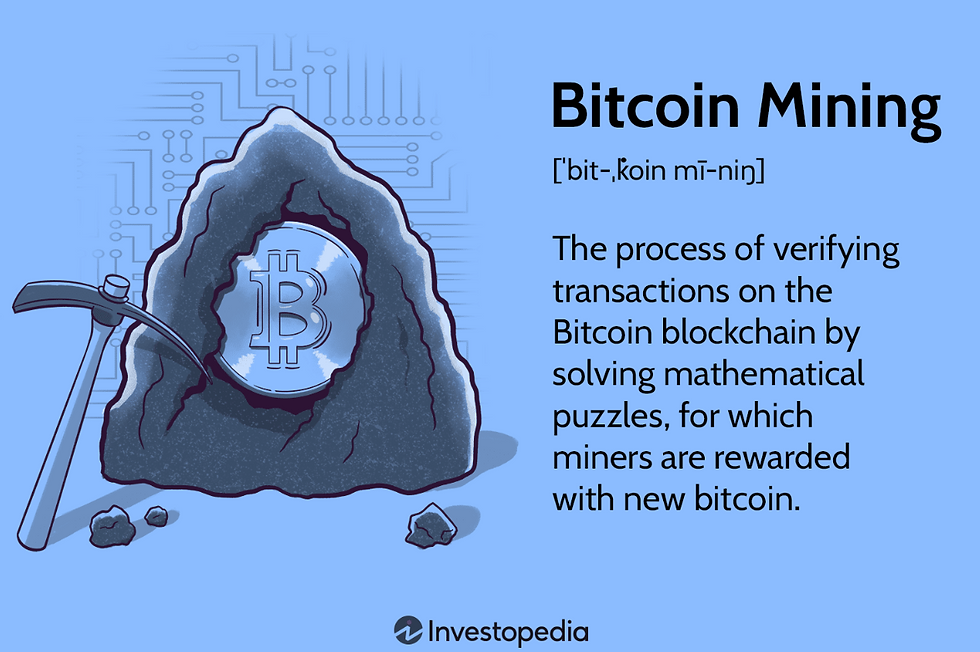Perhaps within recent years, terms like “cryptocurrency” or “Bitcoins” have become increasingly common in your cognition, but how much do you know about this game-changing creation? Invented within the past two decades, cryptocurrency has become one of the most remarkable yet controversial creations of the modern world. Its mysterious and “perfect” design has led to its booming monetary value and a constant dispute between economic and political fields. Holding the possible power to completely revolutionize the world’s economy, cryptocurrencies are undoubtedly one of the most influential creations of our 21st century.
What is it?
Cryptocurrencies are a form of digitized currency within a network protected by encryptions, establishing a secure environment with no direct hacking or theft. The distinguishing difference between cryptocurrencies and our conventional currency is their decentralized operative qualities, where no third parties (Private firms, Banks, Government parties, etc.) participate in any transactions and payments.
Alternatively, transactions made by cryptocurrencies are validated and recorded through a peer-to-peer encrypted ledger that anyone on the network can access, enforcing immutability and trust between users. The ledger is blockchain technology, where every few transactions are encrypted and recorded within a “block”. As more transactions occur, new blocks are connected to the record, thus forming a continuous chain.
History and Origin
The concept of cryptocurrencies dates back to 2008, when an anonymous person going by the pseudonym “Satoshi Nakamoto”, published a whitepaper that revolves around the early prototype of cryptocurrency and what is now famously known as “Bitcoin”. An individual soon created the network, or a group of people in the community that went by the same pseudonym, and the network of Bitcoin was ultimately launched in 2009.
Click here to view the white paper.
Bitcoin’s launch has depicted a massive success. As more and more people get involved with the trade, the market price of bitcoins has grown tremendously. The success of Bitcoin has sparked many similar cryptocurrencies to be created; while some have shown success, bitcoin is still the dominating crypto within the current market. As of March 2024, there are approximately 13,217 types of cryptocurrencies. Some famous examples include Bitcoin (BTC), Ethereum (ETH), and Tether (USDT).
Bitcoin’s success and influence
Being the original cryptocurrency, Bitcoin established many foundations that increased its value and users. Foremost, the total amount of Bitcoin is capped at 21 million, resulting in its fixed amount to resist depreciation and maintain rarity. Furthermore, due to being decentralized, the safety and stability of bitcoin’s value are assured as no third party controls its amount and price. Lastly, to obtain Bitcoin, there are only two ways:
To exchange bitcoins for other fiat currencies.
To mine Bitcoins.
The process of validating transactions is projected by providing a solution to a cryptographic puzzle, which requires a substantial amount of computational calculation. When an accepted solution is provided to validate a transaction, a new block will be added to the chain. In return, the user that provides the solution will be awarded with a “bitcoin” as a reward. Calculating a solution to validate a block is known as “mining” and the reward of solving the puzzle is known as “proof of work”.
Due to its being decentralized, Bitcoin can act as an international currency that is not controlled by any political party and requires no handling fee when transacting. This results in a significant financial disadvantage for governments and financial firms, causing them to be unable to control their currency, thus reducing its trust and value. To defend most major countries, they have issued strict laws and bans on the trading of bitcoins and other cryptocurrencies, forcing bitcoin to become an investment product over a currency.
Reference List
Bitcoin (2009). Bitcoin - Open source P2P money. [online] Bitcoin.org. Available at: https://bitcoin.org/en/.
Frankenfield, J. (2023). Cryptocurrency Explained With Pros and Cons for Investment. [online] Investopedia. Available at: https://www.investopedia.com/terms/c/cryptocurrency.asp.
Hayes, A. (2023). Blockchain Facts: What Is It, How It Works, and How It Can Be Used. [online] Investopedia. Available at: https://www.investopedia.com/terms/b/blockchain.asp.
Kelly Anne Smith (2018). 13 types of cryptocurrency that aren’t bitcoin. [online] Bankrate. Available at: https://www.bankrate.com/investing/types-of-cryptocurrency/.
Nakamoto, S. (2008). Bitcoin: a Peer-to-Peer Electronic Cash System. [online] bitcoin.org. Available at: https://bitcoin.org/bitcoin.pdf.
Pinkerton, J. (2023). The History of Bitcoin, the First Cryptocurrency. [online] US News & World Report. Available at: https://money.usnews.com/investing/articles/the-history-of-bitcoin.
Wikipedia Contributors (2019). Satoshi Nakamoto. [online] Wikipedia. Available at: https://en.wikipedia.org/wiki/Satoshi_Nakamoto.
www.britannica.com. (2024). Britannica Money. [online] Available at: https://www.britannica.com/money/cryptocurrency.
.png)




Comments